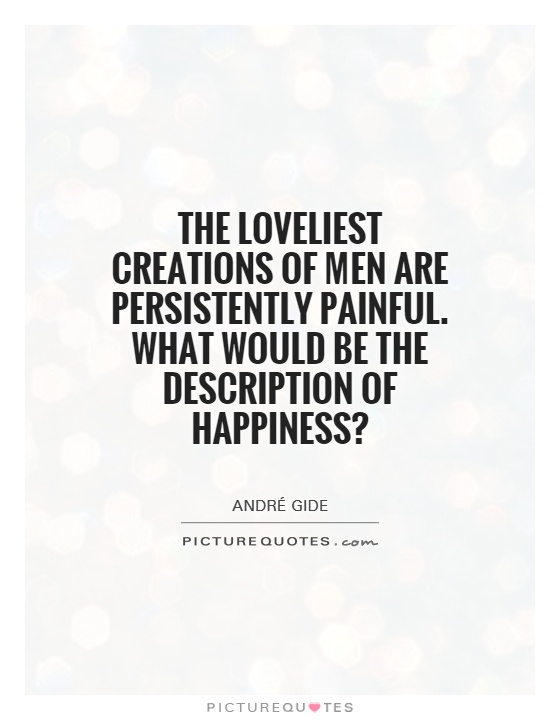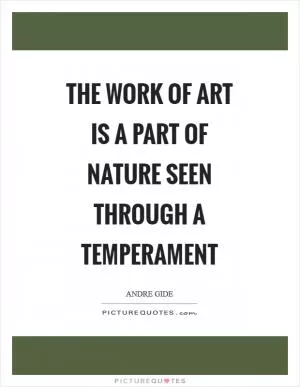The loveliest creations of men are persistently painful. What would be the description of happiness?

The loveliest creations of men are persistently painful. What would be the description of happiness?
André Gide, a French author and Nobel Prize winner, was known for his exploration of complex human emotions and the inner struggles of individuals. In his works, Gide often delved into the idea that the most beautiful creations of mankind are often accompanied by pain and suffering. This concept is evident in his novel "The Immoralist," where the protagonist, Michel, embarks on a journey of self-discovery that ultimately leads to his downfall.In the context of Gide's philosophy, the statement "The loveliest creations of men are persistently painful" can be interpreted as a reflection of the inherent duality of human existence. Gide believed that true beauty and greatness often come at a cost, whether it be personal sacrifice, moral compromise, or emotional turmoil. This idea is exemplified in the character of Michel, who becomes consumed by his pursuit of pleasure and self-gratification, only to realize the emptiness and despair that accompany his actions.
Despite the inherent pain and suffering that may accompany the pursuit of beauty and greatness, Gide also believed in the possibility of finding happiness and fulfillment in life. In his essay "The Fruits of the Earth," Gide explores the concept of happiness as a state of inner peace and contentment that transcends external circumstances. He suggests that true happiness can be found in the simple pleasures of life, such as nature, art, and human connection.
For Gide, happiness is not a fleeting emotion or a temporary state of euphoria, but rather a deep sense of fulfillment and purpose that comes from living authentically and in alignment with one's true self. It is a state of being that is not dependent on external validation or material possessions, but rather on inner harmony and self-acceptance.












 Friendship Quotes
Friendship Quotes Love Quotes
Love Quotes Life Quotes
Life Quotes Funny Quotes
Funny Quotes Motivational Quotes
Motivational Quotes Inspirational Quotes
Inspirational Quotes